1793 When archetypes have flesh
Poetry omnibus: Linda Rogers reviews ten new books by BC poets:
*
When archetypes have flesh
by Linda Rogers
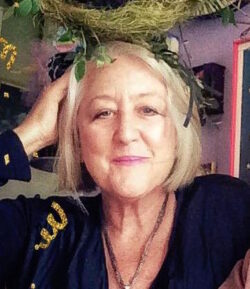
Every Chinese Emperor/ Empress chose a note to indicate the tone of his or her time. The sound of now would seem to be rust or dislocation, the squeaking doors signified by books in this omnibus review. We are in recovery, gasping for breath as many, historically denied oxygen, take up the space once denied them.
Just as narcissism was the precursor to late 20th century poetry, the empathetic genre in tune with social liberation, we now have the neuroplastic response to inclusive community, poetry of isolation reflecting the “no handshake” germless words of introspection and microcosmic sensibility.
It remains to be seen how and when poets respond to a general need for community, for trust, for reaching into the uncommon mind and finding the common purpose. Some poets, wounded in the colonisation of the planet by extreme social Darwinists, dominance of the fittest, do not have that luxury. Others respond involuntarily. It is in their DNA, so interesting to observe how poetic reaction to social isolation shakes out, to see how it falls along demographic lines.
We have known builders and wreckers, writers who built ladders of words and those who used their words to destroy, never say best or favourite. But there is a poet among these who gives hope for the journey ahead. If you can guess who that might be you might be en route to the burger stand where plain words and plain food reach for the sky — Linda Rogers
*
Dislocations
by Karen Enns
Regina: University of Regina Press, 2023
$19.95 / 9780889779303
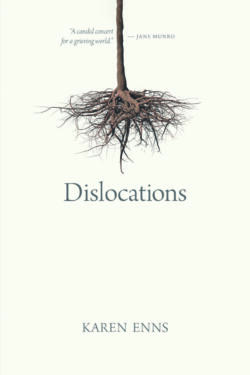 In all these poems
In all these poems
I’m partly somewhere else.
With you, without you,
Walking toward you or away.
As the writing and reading experience fold in together, not too much stirring so the eggs stay aloft, Karen Enns provides script that looks like skywriting by artful acrobats. Her words appear and disappear, take off and land, as she dispenses the scent of herself in rooms she enters and leaves. No you see them, now you don’t.
In the poem “In Dream: Appearances”, a confrontation with her Jungian fox, she calls up Ted Hughes, his robust exercises in primal fear, but hers is a less baroque experience in the dream reality which is more about transcending than confronting the phenomenal world, where dreams are captured and released by poets and psychologists.
In singing, it is called “the head voice,” affirmations of angelhood in a milieu of baser instinct.
If it too sees me, sees me watching,
If it snares my scent, I will know
I am here. I exist.
As souls are caught and released by metaphorical foxes, some are called to witness.
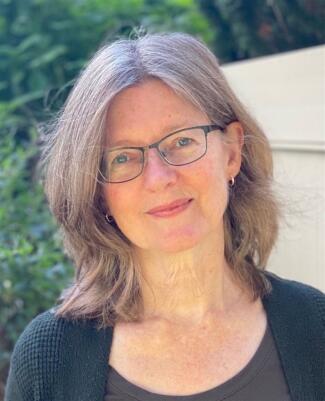
An otherworldly child of one poet resonates complaints about her detail obsessed social worker, “Donna flakes of skin,” the congenital affect of poets with too many nerve endings. Think Dick Tracy’s Flyface surrounded by fluttering truths and lies, thoughts that come and go, continuing to irritate while the artist records the paranormal phenomena.
This poet wishes and blows off the mundane until she is left with archetypal shapes, crows and aspirational trees, a Jungian journey.
When she references roots, we ask, what is Dislocation? A chorus of friends attempts to define it for her as “concert,” “the sculpting of silence,” words that begin in noise and substance to be carefully refined, so we are left, after the sacrifices, with the gestalt signified in startling moments:
Darkness tilts the universe.
You hear a shift.
But it is not all music and the mid-century fashion for minimalism (Oh Howl, where art thou?) leaves us hungry for the compost of her delirious dreams, roots that release the cosmic voyageur. What is feeding this self-exploration, rapturing out of the phenomenal world?
A Crow could land on the sill where the paint is peeling
and speak to you in the sentences so finely crafted
you accept the message as good news from another realm.
When the naked wood reveals messages like this, the reader/listener accepts transport by an invisible presence, the dream interpreter who has achieved a lightness of being that transcends body and moves to spirit.
This is Beethoven versus Stravinsky, Hunt versus Dick, Callas versus Sutherland. What is transcendental wafer and what is mere food? Should archetypes have flesh? Where do body and spirit meet? Ask Leonard Cohen. He re-wrote every poem a hundred times, looked for the perfect line in the chaos of banality, where men and women heave in holy conflict.
For this poet, the conflict between technique and art is written into her “Piano Masterclass” which examines the moments when “The leaf drifts to earth. Each vein holds all living in it one last time.”
We hear her head voice, da capo, most satisfying when lyrics link the chakras, basement to attic, where prisms of refracted light beckon and sometimes inform. These are the flies, the flakes of skin asking the questions that make our time before flight as perilous as the dance between mind and heart, not to mention groin, desire, the matrix of poetry. Flight is always a risk when we leave the familiar behind, but when desire manifests in lines like “short blasts of bliss/ against a horizontal focus,” we begin to see answers.
*
Derelict Bicycles
by Dale Tracy
Vancouver: Anvil Press, 2022
$18.00 / 9781772141986
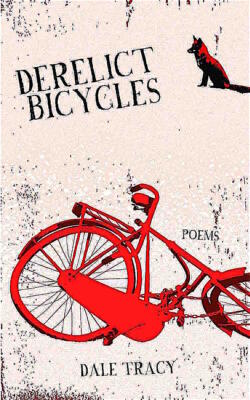 It is always tempting, when reading poetry books back to back, to consider them as a conversation or a long meal. Which is the first course, when the rebuttal? Dale Tracy offers us rust and that is more than contradiction. It is a whole new food form.
It is always tempting, when reading poetry books back to back, to consider them as a conversation or a long meal. Which is the first course, when the rebuttal? Dale Tracy offers us rust and that is more than contradiction. It is a whole new food form.
These derelict bikes make U-turns. They ride up and down stairs, storm off dangerous cliffs and surprise us by flying. This is refreshing after the elegant self-consciousness of the constantly workshopped/ photoshopped nouvelle poesie. Tracy has a risk factor, a wildly associative mind that makes comedy and poetry a possibility is a world of random possibility as she literally digs into the sub-conscious mind, where archetypes sleep.
The shovel opens the body into a round
tidy room, wood stove still smoking, TV on,
occupant gone.
In a new world of gender fluidity, all objects are shapeshifting, even bicycles, vehicles of the soul, with their anxious voices. The freedom from self-absorption which has seen poetry turn anorexic and a generation of women into eyebrow artistes is exhilarating. The only danger is becoming an excess of less and this Dale Tracy, a skilled rider, avoids.
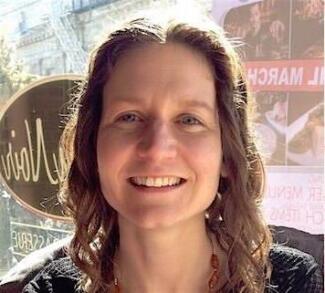
Tracy superimposes the microcosm on the macrocosm as her attention shifts from little to big and we are invited to embrace the whole concept, what Blake said, “…heaven in a wild flower”. Her objective correlatives are deliberately mundane as she gives grace to the small sounds, the small moments.
Because this book is a richness of allegory, a slightly slimmer slim volume might keep us within the Canada Food Rules. But who needs rules when lines like this pop off the page, while
The melodrama’s ripe self
bursting itself to grow the trees
of night brain: fertile, stretching
glimmbrill.
Ahhh, glimmbrill the new generation protoplasm, a one-celled thing with incantatory power. She’s all over it. This is her first book. More to come and surprise hell out of us. Maybe the bicycles will mate, maybe they will develop empathy along the road and form a community of homeless bipeds. We sense new genres emerging from the introversions of pandemic. You all, the accusatory voice of Howl is muted in the language of women educated to use their inside voices, as confessional poetry becomes more like navel gazing. All of this is valid and reflective of our time, but there are hungry people out there. We seek balance.
Rust is a lovely palate cleanser, another vehicle for truth and beauty, but in a world of bike lanes and road rash we remember horsies, don’t we? Giddyup!
*
Pascal’s Fire
by Kristina Bresnen
Windsor, ON: Biblioasis, 2023
$19.95 / 9781771965439
 Oh, we might wish she’d brought in The Wyfe of Bathe, a rowdy feminist with gat teeth, a sure sign she’d travel far. Oh well. This book is not about sex or sexism. It is a philosopher’s stone touching on the curse of Demosthenes, a speech impediment with a human aka phenomenal solution, stones in the mouth.
Oh, we might wish she’d brought in The Wyfe of Bathe, a rowdy feminist with gat teeth, a sure sign she’d travel far. Oh well. This book is not about sex or sexism. It is a philosopher’s stone touching on the curse of Demosthenes, a speech impediment with a human aka phenomenal solution, stones in the mouth.
We all have it, Kristina Bresnen asserts, navigating triumphant examples of human infirmity where “a cloud of witnesses,” assemble to affirm the triumph of spirit over matter: the patriarchs Moses, St. Paul, Pascal and the matriarchs Dickinson, Woolf et al, led by Hestia the queen of domesticity, a literal dog in the hearth, where fire is power.
“I need a howl, a cry” Woolf wrote and Ginsberg agreed. Like A.R. Ammons, ” I bank my arms into the turn and lift.” Wind is the omniscient character raising humans to the ranks of seraphim who never stop complaining. That would be God, according to Christian wisdom, but some prefer to read “Goddess,” or Mother, the last word on the lips of dying soldiers who realise too late they should have stayed home.
We are all wounded and speech is the metaphor. Moses was injured by a hot pebble. Clever Demosthenes turns this around. Pebbles are the cure. Bresnan prefers a less prosaic remedy. According to her, we lift ourselves out of the curse with praise.
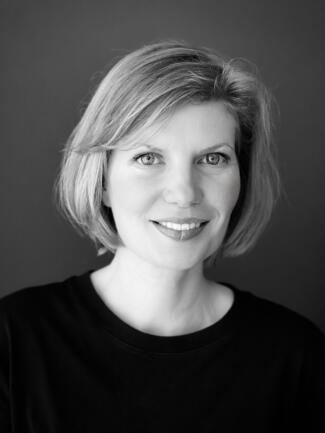
That is a noble intent, her intention. The human condition, never more compromised than now, deserves explanation. Some might blame the patriarchal god, model for capitalism, where christian soldiers exploit the world and all who live on it for profit, rendering us all speechless in the face of global stutter, the sounds of war and discord.
Bresnen has found a metaphor for the human condition, but some will argue against the facility of faith speech as a solution. Indeed, it is part of the problem, as the bodies of little children suffering unto Them attests.
In her unpublished novel, Mairuth Sarsfield hosted a chorus of angels, famous women who laugh at the human condition, and she left us with the troublesome equation of salvation and humour. Which rises fastest? What leaven apart from baking powder and laughter will lift us out of this despond.
Bresnen gets credit for lifting her eyes from navel gazing and addressing the problem.
Psalm 44:19
You have broken us in the place of jackals.
But the jury is still out on her solutions:
Psalm 81:10
Open thy mouth wide and I will fill it.
Here’s hoping that, mouths open or shut, Pascal’s law for displacement is universal, that the poet’s mandate for peace infuses the unnatural world with kindness, displacing every impediment to humanity.
*
The Punishment
by Joseph Dandurand
Gibsons: Nightwood Editions, 2022
$21.95 / 9780889714328
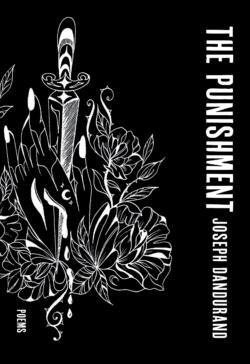 What’s good for the goose, equal opportunity, is common law on Turtle Island, where all turtles are potentially innocent or guilty as charged. The kids are guilty, the priests are guilty, the parents are guilty, the government is guilty, the Queen is guilty, so bury her in red face, not a fifty dollar bill.
What’s good for the goose, equal opportunity, is common law on Turtle Island, where all turtles are potentially innocent or guilty as charged. The kids are guilty, the priests are guilty, the parents are guilty, the government is guilty, the Queen is guilty, so bury her in red face, not a fifty dollar bill.
Everyone suffers the little children in Joseph Dandurand‘s book of crimes, and punishment is universal. In the current wave of Indigenous wisdom as high art, the genius of recent discovery, not articles, one can be forgiven a moment of cynicism, not all who suffer have the gift of tongues. Dandurand circles them all, all the poets lost in denial, not the river, where he “…can sit here for hours and watch the colours change in an ocean of discovery,” his and ours as it happens.
By now, those who are not totally insensate realise that bigotry, cruelty, abuse are intergenerational trauma, and even the child who has escaped previous seasons in hell is vulnerable in the next, and the one after that, as wounds are bred in the bone. He did not choose to suffer, but he has chosen to witness that
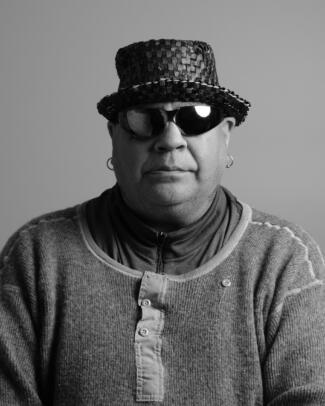
I’ve grown wings and I soar
overhead seeing it all
as if I had seen it before.
The poet has endured and now he suffers us in language that is direct, honest, hard hitting and, although elegant, never so pretty that we mistake it for seduction.
“Are you good. Are you better?” I asked a nun on her way to Kuper Island, now Penelekut, and she, knowing she was not, wept. It is time these crimes are expurgated by victims and poets, victim poets, and banished to rot in the cosmic gutter.
This is a book for weeping as the Kwantlen poet describes the mother who had her culture and her mothering skills punished out of her, as he endures repeat charismatic christian performance and throws it all up: rape, theft, insult, with the bile, or whatever passes for perverse sacrament, on the mean streets and hospitals where pills are consumed like supernatural candy by successive victims.
…someone new who looks droopy and drools and swears
he was the second coming and I think about the parade he
will soon be joining with all the gods of the place walking
and talking the truth, as if the truth mattered.
And it does, because they were seeds, and no one knows better than this poet, whose self-examination is utterly justified, that seeds will grow in killing fields and might flourish like the the poppies in Flanders fields. Behind the cries of anguish, we hear the voices of elders, drummers in the Big Houses, poets on the page. We hear the children dancing. That too is poetry.
I am at peace with all of this and write a poem for all of you
as you open this book and imagine the screaming orchestra
as she weeps a sweet melody for the folks across the river
where the bury a loved one in the dirt of all our souls.
This book with its black and white cover should be read all over, not the joke about the newspaper, but real news. Like the kitty who unzips a rat with one fingernail, he lets it spill, where read as in red, blood red, is storytelling. Shame is fine. Horror is appropriate for those who have waited to long for truth to arrive on their doorstep.
*
Accidents
by Genni Gunn
Winnipeg: Signature Editions, 2022
$17.95 / 9781773240985
 The first accident is birth followed by the first absence as this poet begins to mend the familiar faces in broken windows and broken crockery, to complete unfinished portraits and fill in the hairline cracks in memory, as, quoting Mark Strand, her “parents rise out of their thrones into the milky rooms of thrones.”
The first accident is birth followed by the first absence as this poet begins to mend the familiar faces in broken windows and broken crockery, to complete unfinished portraits and fill in the hairline cracks in memory, as, quoting Mark Strand, her “parents rise out of their thrones into the milky rooms of thrones.”
Genni Gunn‘s story begins in ancestral conflict, where smashed plates in domestic arguments reverberate “plates inside the earth, this liquid rage a perfect storm,” as she finds refuge in many rooms, the countries of the heart, and the notion, shared with Strand, of invisible interventions.
As she changes key from absence to artifact, we note the human condition, substituting phenomenal evidence of existence for the parental void, inhabiting characters and masks, even voices, discovering
The scold’s bridle was a mask attached
to a locked iron muzzle studded with spikes
to dissuade women from speaking,
yet words are masks too.
Many witness to poetry as praise song, secular prayer. All agree that it should be its own music, and writers like Gunn, whose authentic voice hovers in the jazz key of B flat, is a refreshment of that golden rule.
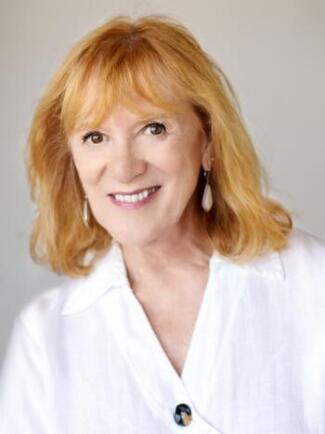
And every night
she is transformed into a darkness
other than herself –
And, as she rolls into her third movement, we realise this opus is more than scat, unstrung songs related to the heart but a construct, maybe opera. She is Italian after all. In the theatre they say every movement must have a motivation. For this poet it is navigation of the ghosts who accompany her on her journey through time. Invisible, blind, moving by touch, haptic decisions, they are always present, invisible, irrevocable. Once touched, they become memory, as hard and fast as any rule of music or grammar. Love endures. Danger endures. Accidents happen.
You cannot ignore them
or turn them away
they cleave to you-
They know you the way
refugees know one another…
In the end, the event, Gunn, in her final costume, birthday suit again, gives us a prescription for anxiety, the condition of our time as we hover in the shadow of global catastrophe
In the event of an event impending death build windows
to escape from eternal arks temples for disbelievers to conceal
the aftershocks bridges to span the sudden gulps the panic
and the enduring hope that we will overcome, reverberations of the childhood rhyme, going in and out the windows, as we have done before.
*
Orchid Heart Elegies
by Zoe Landale
Montreal and Kingston: McGill-Queen’s University Press, 2022
$19.95 / 9780228014393
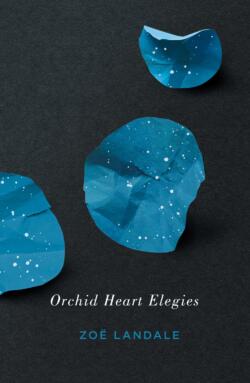 “The First Elegy” is hard advice in a soft glove.
“The First Elegy” is hard advice in a soft glove.
Being human is a life sentence to enduring grief that lasts until it is our turn to be grieved. That is why all poems are elegies, for a time, a place, a being with whom we share air. There are no options. Life is ephemeral and we are the bugs caught in amber. Zoe Landale describes the origins of poetry and religion, liturgies for endurance. “We worship this silence? Because it calmly refuses to annihilate us.”
We are not immune. In a collection of astonishing poems, after Rilke’s beautiful Duino Elegies, ten poems for survival of his annihilated soul, Landale advises us to invite emptiness. As the nurse with the needle says, “It hurts more when you resist.”
Her lifeline is the phenomenal world and the elegies that mark the stations of grief are angel commentaries that make her soul walk tolerable. There is intervention in loss and the spirit guides speak in wind and trees and flowers lusting after the light, one petal opening at a time in orgasms of the heart.
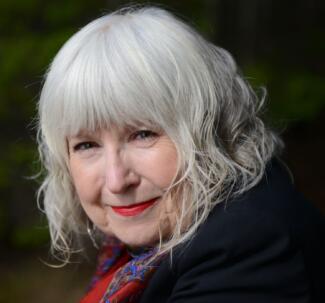
All this takes courage, “You never understood before what a valiant act being alive really is,” but the poet helps us discover runes that will be deciphered some day. Suffering is part of the greater gestalt that messengers are sent to interpret.
Ancestors, speak to us and through us,
we’ll take all the windows you offer.
These windows do not arrive by themselves. They must be discovered like a ferocity of cougars and approached with the bravery of experience and belief in the circular connection of life systems, all my relations, actual terror that brings terrible beauty.
They have the unpredictable beauty
of a waterspout, lethal verbs
that haven’t yet struck an unsuspecting noun.
And there is the key, language, the tool to unlock and interpret the mysterious function of loss in every moment of our lives, Elephants may weep, but humans may translate the wisdom of Angels into plainsong so that we can comfort one another with the greatest gift from our ancestors.
*
Dream of Me as Water
by David Ly
Windsor, ON: Palimpsest Press, 2022
$19.95 / 9781990293184
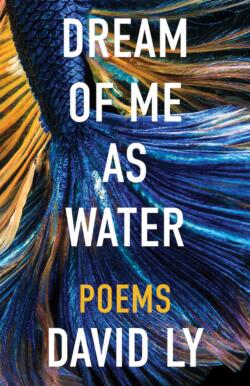 This is the dream and the reality. As the song goes, “we are mostly water” sung for a friend on her deathbed because it was her favourite. Carol Shields, going to spirit, knew her mission was to become the river that flows through all of us, her storytelling surging past mortality, as does this poet David Ly and the painter/poet/ performance artist bill bissett, whose lower case lexical semantics, run on and on, forever sentences without periods, full stop, and never ending legato in his witness to a world without borders.
This is the dream and the reality. As the song goes, “we are mostly water” sung for a friend on her deathbed because it was her favourite. Carol Shields, going to spirit, knew her mission was to become the river that flows through all of us, her storytelling surging past mortality, as does this poet David Ly and the painter/poet/ performance artist bill bissett, whose lower case lexical semantics, run on and on, forever sentences without periods, full stop, and never ending legato in his witness to a world without borders.
Maybe its natural for him to return
to the three seas where his existence is rooted
from time to time, pulled back to write about
facets of identity…
Insecurity runs through these poems and yet the overwhelming awareness is that being one of the many water molecules exchanged between life forms is a form of immortality.
I want to be the ocean
and the lightning that could
strike it at any moment.
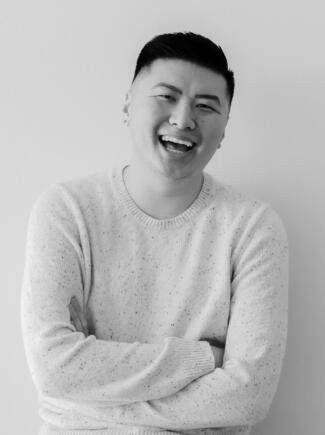
Can we assure Ly that he, like bissett or Shields, both aware of their mortality and their smallness in the molecular scheme of things, can afford to relax into the water and spend less of his poetic legacy on anxiety.
………………….How much longer
to grow and feel
…………………..completely alive
before coming to rest?
Water never rests is the answer; and the flow of words is guaranteed as it is passed from mouth to mouth. Ly needs to believe this as he casts his concern to questions of immortality, as do many artists. He answers his own questions as he changes shape, assuming the plasticity of the animals he identifies with.
…………………….I’ve cast my net
………….countless times trying
………………………………..to catch
the promise
of what lies
ahead.
What we have to believe as creators is that creation is in a moment that requires all our attention, and that we put aside whatever differences that exist, identity politics and identity poetry for the greater purpose, the ocean that is us.
*
Trinity Street
by Jen Currin
Toronto: House of Anansi, 2023
$19.99 / 9781487011628
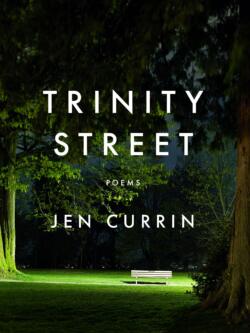 Less is more they say but sometimes they neglect to inform us less is less, and we are left without a map on Trinity or any other street we hope will lead us to the cryptic destination, maybe faith, maybe joy, maybe just a good read.
Less is more they say but sometimes they neglect to inform us less is less, and we are left without a map on Trinity or any other street we hope will lead us to the cryptic destination, maybe faith, maybe joy, maybe just a good read.
I never tell anyone where I worship
why, or how.
We are left to guess among the empirical evidence of living, the crumbs of bread that lead mythical children to redemption and believers to salvation.
There is a locus to this poetic journey but no line connecting the dots, no flesh for archetypes isolated by plague and human alienation from the world and from one another.
Jen Currin, in search of an author, maybe god or goddess if we read the clues, her holy moments, her sections headed by saints and prayers might be looking for poems that serve as incantations “where god,” in the words of Robin Blaser, “moves us to the end of our sentences,” which can be utterance or incarceration. We hope, and hope is eternal, so there is comfort in that and the spices and treats she sprinkles on her wandering hero.
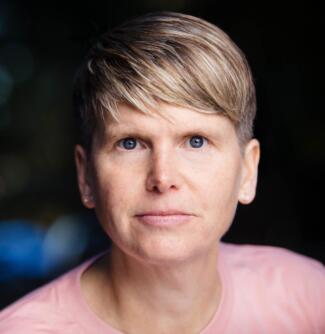
The monks don’t mind
the money
or seem to mind my breath-
constant companion
until I leave this life.
Her narrator has been waiting for a wave that will carry them to the grace in water David Ly envisions, but is left wondering, “where is the water in this story?”
She suggested
the disruption
would be very interesting
or at the very least
possibly
healing.
But the disruptions are mundane and banality is not the medium of mystery. The deities remain veiled and her words “weightless oranges” as we float with them in the void between lines where truth waits to be revealed.
We were recently human,
we endeavoured to cycle, we wanted to juggle,
we had only recently learned to play.
If this is not satisfying, then think of it as the first roll, step one. Game on.
*
Learned
by Carellin Brooks
Toronto: Book*hug Press, 2022
$20.00 / 9781771667876
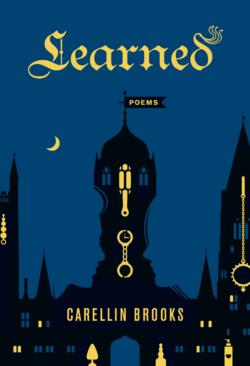 The advantage of growing up in the rainforest is early adjustment to weather, no overcast, a flash of sunlight, a squall. Writers in this environment become master shape-changers, many voices, many genres. A prose writer in the main, Carellin Brooks struggled over her category and landed on poetry.
The advantage of growing up in the rainforest is early adjustment to weather, no overcast, a flash of sunlight, a squall. Writers in this environment become master shape-changers, many voices, many genres. A prose writer in the main, Carellin Brooks struggled over her category and landed on poetry.
The author of One Hundred Days of Rain (Book*hug, 2015) now gives us advice from the centre of the storm, where words are human precipitation and poems prayers for the water that transforms lamentation to celebration.
This is her story.
picked nose, scratched scabs,
blackheads hardly the ting, academic life.
Make myself a vessel, empty and bleached.
Purity. Higher things.
The higher things are books, refuge for children deprived of sunlight, fantasy their portal to better worlds or at least vicarious walks with a fellow sufferers, whose unlimited imaginations release them from trauma. Who better than a Bronte or Dickens, a Grimm, Fitzgerald or Hemingway to accompany a lonely child. This is how scholars are made as she decides to “Seize my box, lift it into the air: almost weightless.”
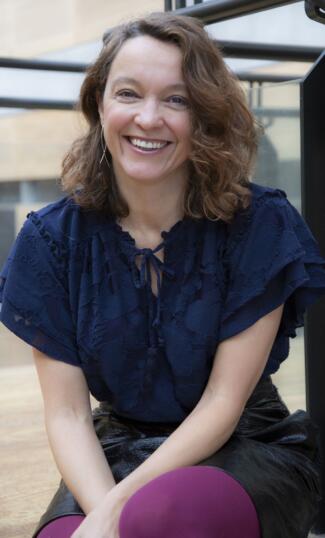
These poems are snapshots of a student changing dress for gown as she earns respect in a world for whom children and women have little currency apart from honours attached to the lucky who seize the box and lift themselves out of invisibility. The process is Learned the noun as opposed to the verb, only a process. The object is to become a noun, a gown for whom doors to personal relevance open.
Call it memoir, notes to judgement, not the final kind but perception when she presents her face to the world, the larger one beyond academia where she is learn(ing), the verb, to pass in a civilisation dominated by men who will touch girls like her inappropriately because they can. And hit them too. All worlds are brutal when you are an intelligent woman. There is no escaping that. Even though “You think pain is something you can play with? And feeling is something you can leave behind…”
In “Lesson Plan” we meet the narcissist who abandoned her as a child. What is it about these people who betray their children, echoes of fear. “The Queen is dead. Long live the Queen”? She wonders if this is human, and the sad answer is yes as the adult child is “shivering under/ thin blanket,/ drifting downriver/ lost”.
It turns out the Rainforest is with her. Water, what we share, is the river she rides to the final destination where as usual, it rains and we understand that rain is beautiful as the seeds we bury in the ground rise up to nourish and perpetuate what matters more than cruelty.
Lessons learned
…….1. Pain sucks me back
into flesh undeniable
……..2. Stop or start my acquiescence at will,
hurt chosen and controlled
……..3. Live in this body of mine,
forget until required to remember
……..4. and again.
We leave her not with a bang, but a whimper. The role of Sisyphus is always difficult to contemplate.
Can I save anyone
…………Least of all
………………myself?
And we take her words as witness. That is what some are called to do and others are required to listen, because poetry is conversation.
*
If You Discover a Fire
by Shaun Robinson
London, ON: Brick Books, 2020
$20.00 / 9781771315272
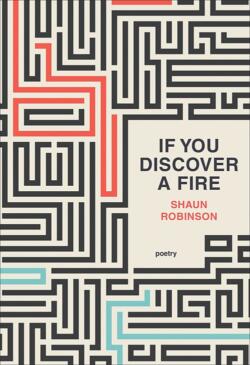 “You’re not a smoker, but you feel down
“You’re not a smoker, but you feel down
to your last match. In ten years of changing
buses here, you’ve never seen anything change.”
Some poets travel with angels, take jet trips between realities, while others, the flat earthers, see life through the windows in trains and buses. Down to his last match, Shaun Robinson gives us the running on empty version of apocalypse, still on fire, the existential version abbreviated in his cover page drawing, a startling glimpse of hope in hell on earth, one flickering match.
We have the choice between fire the creator and fire the destroyer. That is the ride we will take with him.
The highway asks only patience, offers nothing
but time to think about your choices.
We are all learning and forgetting as we travel through landscapes he describes as comings and goings. It matters what we learn from one another because everything hoarded in our brains leaves with us.
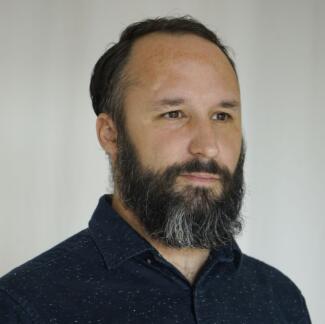
You know you’ll wake on your bathroom
floor, the toilet glowing above you
like a ceramic moon, like a match
struck on your zipper in the dark room
of everything you’ve forgotten.
This book of fresh elegies is a ticket to bigger dreams than we imagine. “The river is this conversation or the river is the rest of our lives.” On page after page, he reminds us that nothing is a metaphor and the slice of lemon floating in our glasses is as real as the section of moon motoring overhead to a known destination, literally tomorrow.
In response to a child who asks what poetry is, we can hand her these lines she will understand, because all understanding begins in her shoes, her feet on the ground always ready for lift off.
Instead, the poem is everything that unfolds
from smaller shape to larger, every fabric
that turns out to be too thin to keep the daylight in.
Like Fred Herzog, “the man who took photos of windows,” Robinson leaves us with a vision of framed realities capturing the chaos of neon, always potentially shattering, but firm in its commitment to light.
Tending the flame
of suffering.
Passing it
like a torch
from one day
to the next.
Amen.
*
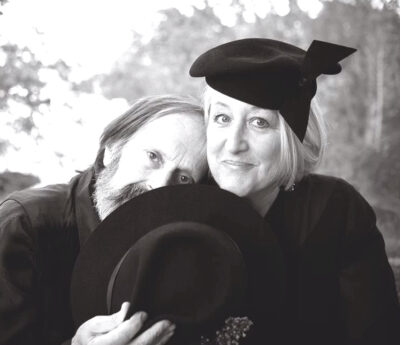
Linda Rogers knows all about the efficacy of poetry that passes as prayer, curse, spell and poultice, and has noticed that poems are springing up like mushrooms in pandemic compost. Whatever works! Without poems it would have been worse. Linda Rogers’ Empress Trilogy is now complete with the publication of Repairing the Hive (Ekstasis), and FriesenPress printed her edited pandemic collection, Mother, the Verb, Swan Sister Treasure Book (2022) the stories of activist artists. Editor’s note: Linda Rogers has recently reviewed books by David Bouchard & Kristy Cameron, Karen Whetung & Lindsay Delaronde, Julie Flett, Shawna Davis & Toonsa Jordana Luggi, Nicola Campbell & Carrielynn Victor, and Hetxw’ms Gyetxw (Brett D. Huson) & Natasha Donovan for The British Columbia Review. Her book Crow Jazz (Mother Tongue Publishing, 2018) was reviewed by Paul Headrick and Mother, the Verb, Swan Sister Treasure Book is reviewed by Cathy Ford.
*
The British Columbia Review
Publisher and editor: Richard Mackie
Formerly The Ormsby Review, The British Columbia Review is an on-line book review and journal service for BC writers and readers. The Advisory Board consists of Jean Barman, Wade Davis, Robin Fisher, Barry Gough, Hugh Johnston, Kathy Mezei, Patricia Roy, Maria Tippett, and Graeme Wynn. Provincial Government Patron (since September 2018): Creative BC. Honorary Patron: Yosef Wosk. Scholarly Patron: SFU Graduate Liberal Studies.
“Only connect.” – E.M. Forster
11 comments on “1793 When archetypes have flesh”
Many thank you’s.